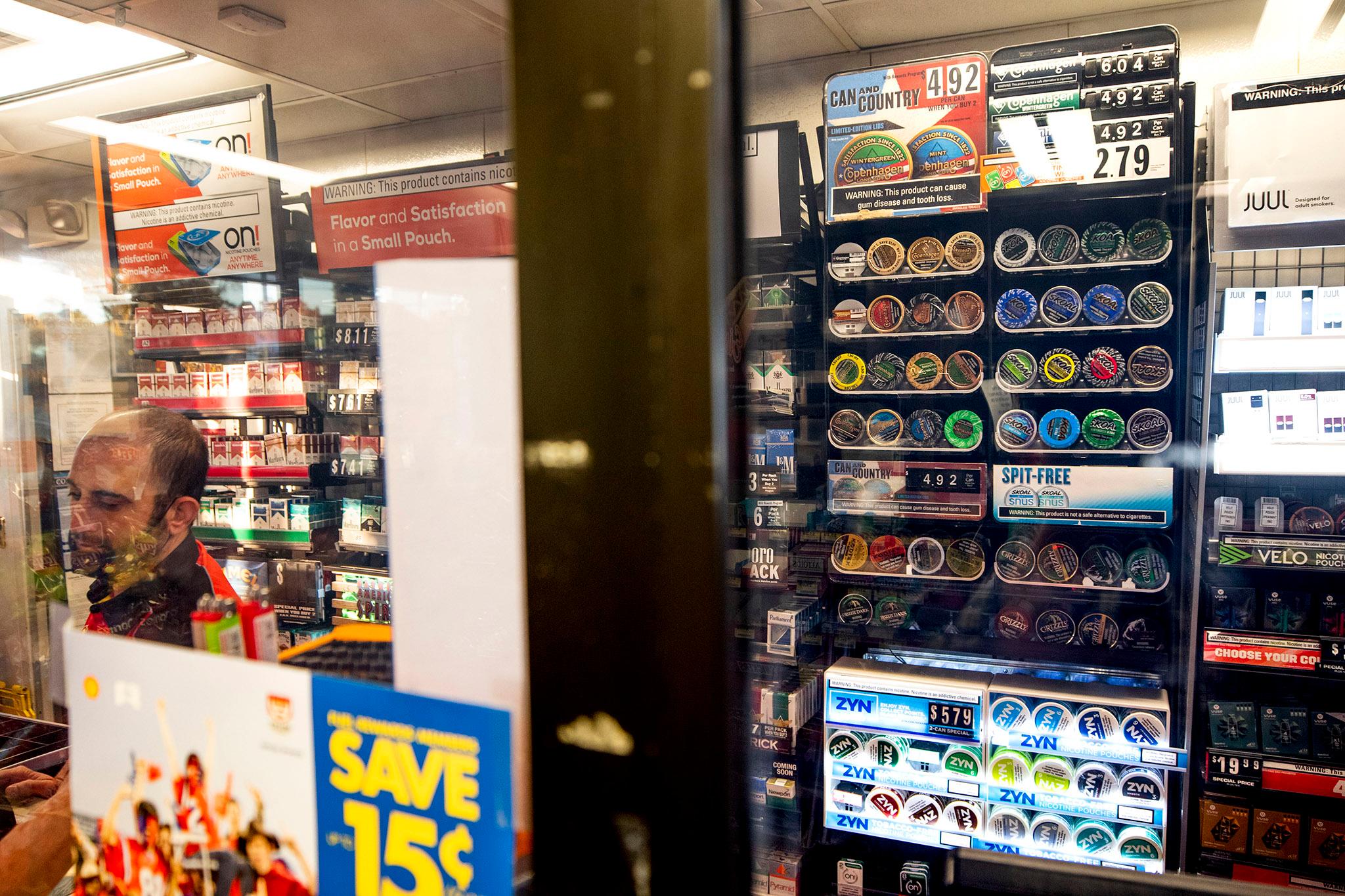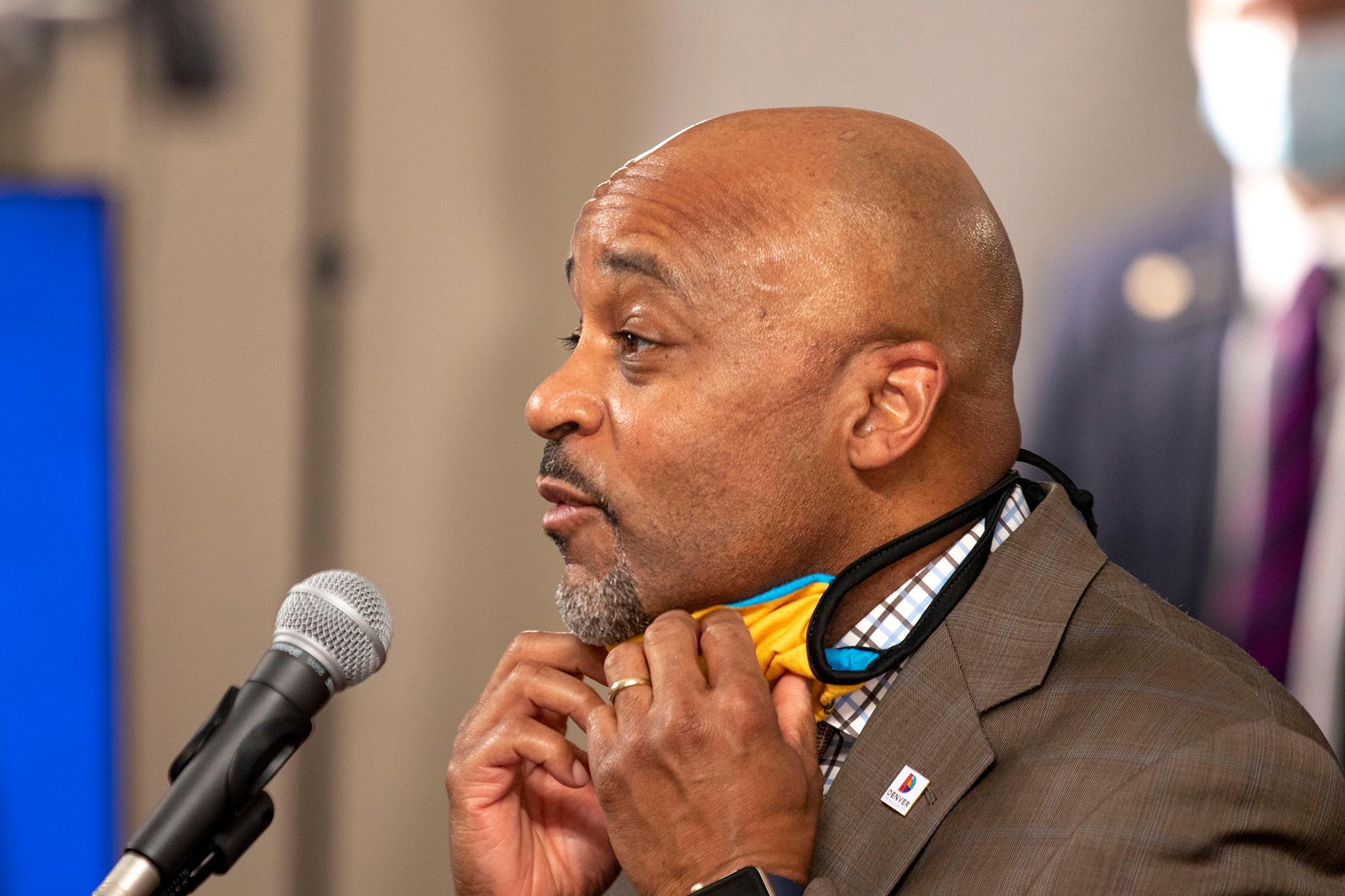Mayor Michael Hancock has vetoed a bill banning the sale of most flavored tobacco products in the city, his office announced Friday.
The Denver City Council voted 8 to 3 on Monday to pass the bill after making tweaks to the original one introduced in October. Council members Kendra Black, President Stacie Gilmore, and Paul Kashmann voted no, while Councilmembers Kevin Flynn and Chris Herndon were absent on Monday and did not cast a vote.
The bill would have banned the sale of products including flavored cigarettes, chewing tobacco, menthol cigarettes, and vape liquids, but made exemptions for hookah products, pipe tobacco, and cigars.
Council members Amanda Sawyer and Debbie Ortega, who co-sponsored the bill, said the bill's primary purpose was to curb tobacco use among youth in the city. Even before the pandemic, teen vaping was a high-profile public health issue for the state, with 2018 study from the Centers for Disease Control finding high schoolers in Colorado used electronic cigarettes more than teens in 37 other states.
Hancock said in a statement he shared in the lawmaker's goal to reduce youth nicotine use in the city, adding raising the purchasing age for tobacco products to 21 and creating a new tobacco retail store licensing as steps towards addressing this issue. In a letter addressed to council members, Hancock said he would prefer a statewide ban or even a metro area ban on flavored tobacco products.

He said that while the bill was well-intentioned, it falls short.
"We cannot appropriately address the public health impacts of youth tobacco use if that public health response occurs only in Denver," Hancock wrote in the letter to city council members.
Hancock added convenience stores get a "significant portion" of their revenue from selling these kinds of products. He noted the ban would impact these businesses, which he noted are often small and minority-owned.
Sawyer and Ortega said in a joint statement Friday they were disappointed in the outcome while calling out Hancock for choosing "profit over people."
"If the Mayor believes increased enforcement would be effective to address this epidemic, those changes could have taken place at any time," the statement read. "So far, he has chosen not to do anything, but we appreciate his partnership in continuing this discussion."
Councilmember Black did not think banning flavored tobacco sales would do much to curb use among young people, and would instead lead to local businesses selling vape products to close. In previous meetings, Flynn agreed with Black, and additionally called the bill an overreach impacting adults.
The veto was celebrated by local vaping business owners, including Monica Vondruska, owner of Cignot Vaping in Denver.
"Our work is not done," Vondruska said in a press release on Friday. "We pledge to work with Mayor Hancock and the entire Denver City Council to pass common-sense legislation in 2022 that both reduces youth vaping while still allowing responsible adults to purchase flavored vaping products in age restricted stores to quit smoking cigarettes."
Jodi Radke, Regional Director for the Campaign for Tobacco-Free Kids, in a statement called Hancock's veto, "...bad for public health and bad for our kids."
It's only the second time Hancock has ever used his veto power. He used it last year to reject a bill passed by city lawmakers to effectively end the city's ban on pit bulls. A similar measure to legalize pit bulls was sent to voters, who approved it during last year's election.
The full city council will consider the veto during its meeting on Monday. They can overturn a mayoral veto with nine votes. Based on this week's vote count, there doesn't seem to be enough votes to do this; the two council members who did not vote this week, Flynn and Herndon, both have previously said they oppose the bill.
This story has been updated throughout.














